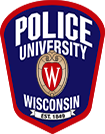After a night out, you notice your friend has had too much to drink. Their condition reaches the point where they’ve become unresponsive and they need medical attention. You’re both underage, and you’re concerned about getting yourself and your friend in trouble. But you know your friend needs help — you do the right thing and call for help. You cooperate with first responders.
In the past, campus guidelines (called Responsible Actions Guidelines) would give you — the caller — a sort of “amnesty.” Because you did the right thing and called for help, and you cooperated with first responders, no police or student conduct action would be taken against you. Police citation(s) and/or student conduct disciplinary action would have been taken against your friend who needed medical help.
New campus guidelines, called Medical Amnesty Through Responsible Actions, would pass along that same “amnesty” to your friend who needed help.
Overview
Amnesty Through Responsible Action is part of the University of Wisconsin–Madison’s comprehensive environmental approach to address high-risk behaviors. Because the health and safety of the members of the UW–Madison community is of primary concern, we want to remove the perceived barriers that prevent students from seeking immediate medical attention. This program has been designed for the student who is concerned for the well-being of a fellow student and enables the university to more effectively address the issue of civility and good citizenship with our students. Students are expected to come to the aid of fellow students who are suffering a medical emergency.
In cases where individuals are incapacitated due to alcohol and/or other drugs, it is imperative that someone calls for medical assistance. In the interest of student safety, this program serves to remove or reduce punitive consequences faced by students in violation of Non-Academic Misconduct (UWS 17 and/or UWS 18).
Amnesty Through Responsible Action allows the student who required medical assistance to receive medical attention without a violation of UWS 17 and/or UWS 18. It would also remove violations for those who assisted the student in need.
Please note, the following guidelines apply only to disciplinary actions related to a caller’s personal consumption of alcohol and/or other drugs and of the individual who is in need of medical attention. They do not apply to the supplying of alcohol or other drugs, or to other crimes/violations of university rules.
Caller
When a student calls on behalf of an impaired individual, remains with that individual until assistance arrives, fully cooperates with emergency responders, and attends any follow-up meeting(s) requested by university staff (OSCCS or Office of Student Assistance and Support) the caller will not be subject to disciplinary actions as outlined in Non-Academic Misconduct (UWS 17 and/or UWS 18), sanctions from the Division of University Housing, or citation by UW–Madison Police for their personal consumption of alcohol ( e.g., underage drinking) and/or other drugs. However, failure to call for assistance in an alcohol and/or other drug-related emergency is a very serious matter and will be considered an “aggravating circumstance” factored into disciplinary action against the student should violations of Non-Academic Misconduct (UWS 17 and/or UWS 18) occurred in relation to the incident.
Following the Incident
Person in Need of Medical Attention – When a student requires emergency evaluation and/or treatment at a medical facility for an overdose of alcohol and/or other drugs, the student will be required to meet with a staff member from the Office of Student Conduct and Community Standards (OSCCS) to discuss the incident and to connect with appropriate resources and support. If the student qualifies for this program, they will not receive official sanctions through the disciplinary procedures outlined in UWS 17 and/or UWS 18 provided they complete the following:
- Attend an appropriate alcohol and other drug (AOD) educational program/intervention (e.g. BASICS, CASICS, AOD assessment, and evaluation);
- Comply with recommendations set forth by AOD provider;
- Complete any other educational recommendations from the OSCCS staff member;
- Complete any necessary follow-up meetings with OSCCS staff.
When it is determined a student qualifies for this program, UW–Madison Police will hold the underage alcohol and/or other drug citation in abeyance, pending the student’s completion of the requirements from OSCCS. OSCCS staff will notify UW–Madison Police when the requirements have been completed.
In addition, as per the University Parental/Guardian Involvement Policy, a parental/guardian contact normally occurs when a student is transported to Detox/Emergency Room for overdoses of alcohol and/or other drugs. When the student’s behavior involves other UWS 17 and/or UWS 18 violations, or the student exhibits a pattern of problematic behavior with alcohol and/or other drugs, they may be subject to additional disciplinary action.
Victims of Crime – In cases where a student has been a victim of sexual assault and/or a violent crime while under the influence of alcohol and/or other drugs, neither the Office of Student Conduct & Community Standards (OSCCS), University Housing, nor UW–Madison Police will pursue disciplinary actions against the student victim ( or against a witness) for their improper use of alcohol ( e.g., underage drinking) and/or other drugs. A student victim who is under the influence of alcohol and/or other drugs at the time of a sexual assault and/or violent crime is entitled to university and community assistance and encouraged to seek help.
Student Organizations – A representative of a student organization hosting an event is expected to promptly call for assistance if they become aware of an emergency. Failure to call will be considered an “aggravating circumstance” and will be factored into disciplinary action for the student organization.
